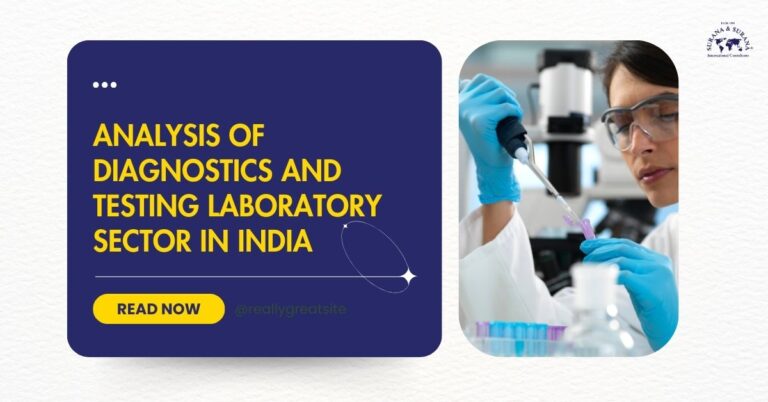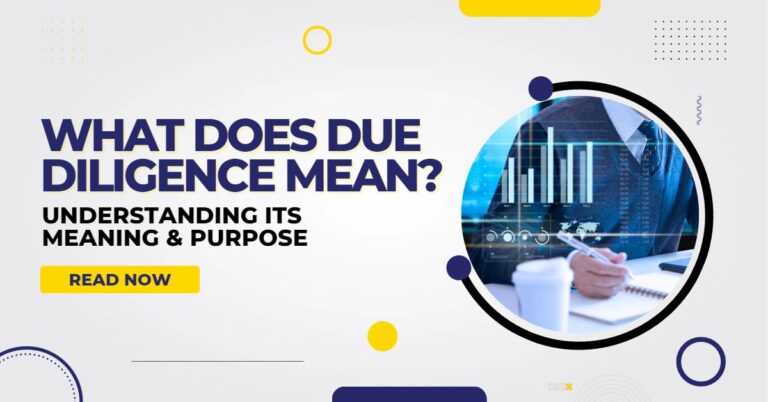Driven by the need for efficiency in a globalized business landscape, the digital transformation of business processes has ushered in the era of virtual due diligence, revolutionizing traditional approaches. This shift isn’t just anecdotal. A recent report found virtual due diligence can save up to 50% of time and resources compared to traditional methods, and the global market for this service is expected to reach a staggering $2.3 billion by 2027, growing at a CAGR of 18.4%.
Virtual due diligence, the practice of conducting thorough investigations into a business’ assets, liabilities, and overall viability through digital means, has become a necessity for navigating the fast-paced world of partnerships and transactions. This paradigm shift reflects the importance of adaptability in modern business. Just consider the 85% of dealmakers who are now using virtual due diligence tools, with 44% relying on them heavily.
But the benefits go beyond mere numbers. Virtual due diligence unlocks global reach, eliminating the need for physical travel and making it easier to evaluate companies in different countries. A study found it can even reduce the time to complete a deal by up to 30%, streamlining the process and accelerating decision-making.
This isn’t just a fad; it’s a fundamental shift in how businesses conduct due diligence. As technology continues to evolve and the global nature of business expands, virtual due diligence is poised to become the standard for conducting thorough and efficient investigations, ensuring informed decision-making for businesses of all sizes. By embracing this digital revolution, companies can unlock new opportunities, navigate international markets with ease, and stay ahead of the curve in today’s dynamic business environment.
The Benefits of Virtual Due Diligence
Cost Efficiency: Virtual due diligence significantly reduces the need for physical travel, lodging, and associated expenses, making it a cost-effective solution for businesses of all sizes. This aspect is particularly beneficial for startups and SMEs for whom budget constraints are often a concern.
Accessibility and Convenience: The ability to access documents, conduct interviews, and review processes from anywhere in the world offers unparalleled convenience. This global accessibility ensures that due diligence processes are not hindered by geographical limitations, enabling businesses to explore and capitalize on international opportunities with ease.
Speed and Efficiency: Leveraging digital platforms allows for the rapid exchange and processing of documents. Cloud-based storage solutions and collaborative tools enable real-time updates and revisions, streamlining the due diligence process and allowing for quicker decision-making.
Broadened Scope: Virtual due diligence provides access to a wider array of tools and data analytics platforms, enabling a more comprehensive analysis of the target entity. This broadened scope facilitates a deeper understanding of potential risks and opportunities, contributing to more informed decision-making.
Challenges of Virtual Due Diligence
Data Security Risks: Conducting due diligence virtually introduces significant data security concerns. The exchange of sensitive information over digital platforms necessitates robust cybersecurity measures to prevent data breaches and ensure confidentiality.
Communication Barriers: The absence of face-to-face interactions can pose challenges to building trust and understanding. Overcoming these barriers requires deliberate communication strategies to ensure clarity and maintain personal connections.
Information Overload: The digital nature of virtual due diligence often results in an overwhelming volume of data. Businesses must develop efficient data management and analysis strategies to sift through this information and identify relevant insights.
Technical Issues: Ensuring that all parties have the necessary technology and skills to participate in the virtual due diligence process is crucial. Technical difficulties can hinder the process, emphasizing the need for technical support and training.
Best Practices for Conducting Virtual Due Diligence
Implementing effective virtual due diligence processes requires strategic planning and adherence to best practices to mitigate risks and maximize the benefits.
- Leveraging Technology: Utilize secure, reliable platforms for document sharing, communication, and collaboration. Tools like virtual data rooms ensure controlled access to sensitive information.
- Preparing Thoroughly: Digitize and organize all necessary documents ahead of time. A well-structured virtual data room facilitates easy navigation and review, saving time and reducing frustration for all parties involved.
- Maintaining Communication: Establish regular check-ins and updates. Clear, open lines of communication maintain momentum and build trust, critical in the absence of face-to-face interaction.
- Enhancing Cybersecurity Measures: Protect data integrity with strong encryption, multi-factor authentication, and access controls. Regularly update security protocols to guard against evolving threats.
- Adapting Evaluation Techniques: Tailor assessment methods to the virtual environment. This might include virtual tours, online interviews, and digital verification of documents.
By adhering to these best practices, businesses can navigate the complexities of virtual due diligence effectively, ensuring a secure, efficient, and comprehensive evaluation process.
The Future of Due Diligence
1. AI-Powered Insights: Imagine AI sifting through mountains of financial data, legal documents, and market reports, uncovering hidden correlations and potential red flags that might escape human scrutiny. This could lead to more accurate risk assessments, identifying previously unseen opportunities, and ultimately, better deal outcomes for both parties involved. However, ethical considerations surrounding AI bias and the need for human oversight remain crucial aspects to address.
2. Immersive Virtual Experiences: Gone are the days of static reports and spreadsheets. Virtual reality tours of physical assets, combined with 3D models of target companies, could offer an unprecedented level of immersion and understanding. Imagine virtually inspecting a factory floor or navigating a retail space, gaining firsthand insights into operations and potential synergies. This could revolutionize cross-border transactions and accelerate the due diligence process, but challenges like data security and accessibility require careful consideration.
3. Blockchain-Enabled Transparency: Blockchain technology, with its secure and immutable record-keeping capabilities, could eliminate the need for extensive document verification and reconciliation. Imagine a future where ownership history and financial transactions are transparently stored on a blockchain, boosting trust and efficiency in cross-border deals. However, regulatory frameworks and industry adoption need to evolve to fully harness the potential of this technology.
4. Predictive Analytics: Imagine being able to predict potential roadblocks and challenges in a deal based on historical data and industry trends. Advanced analytics could provide proactive risk mitigation strategies and optimize deal structuring, leading to smoother transactions and more successful partnerships. However, the accuracy and reliability of these predictions will depend on the quality and completeness of underlying data, requiring careful evaluation and interpretation.
5. Standardized Virtual Platforms: Imagine a one-stop shop for all your virtual due diligence needs. Standardized platforms could offer secure data sharing, collaboration tools, and built-in AI-powered analytics, streamlining the process and making it accessible to businesses of all sizes. This could democratize access to thorough due diligence, fostering fairer and more efficient transactions across the board. However, ensuring data security, platform interoperability, and fair market competition will be critical for widespread adoption.
Conclusion: Navigating the Future with Virtual Due Diligence
The rise of virtual due diligence represents a pivotal shift in how businesses assess risks and opportunities in the digital age. By embracing this approach, companies can enjoy increased efficiency, cost savings, and access to a broader pool of information, all while navigating the challenges of data security and communication. The key to success lies in adopting best practices that prioritize thorough preparation, robust cybersecurity, and clear communication.
As we look to the future, SSIC stands ready to guide your business through the complexities of virtual due diligence. With our expertise, you can confidently harness the power of digital transformation to make informed decisions and drive your business forward.



